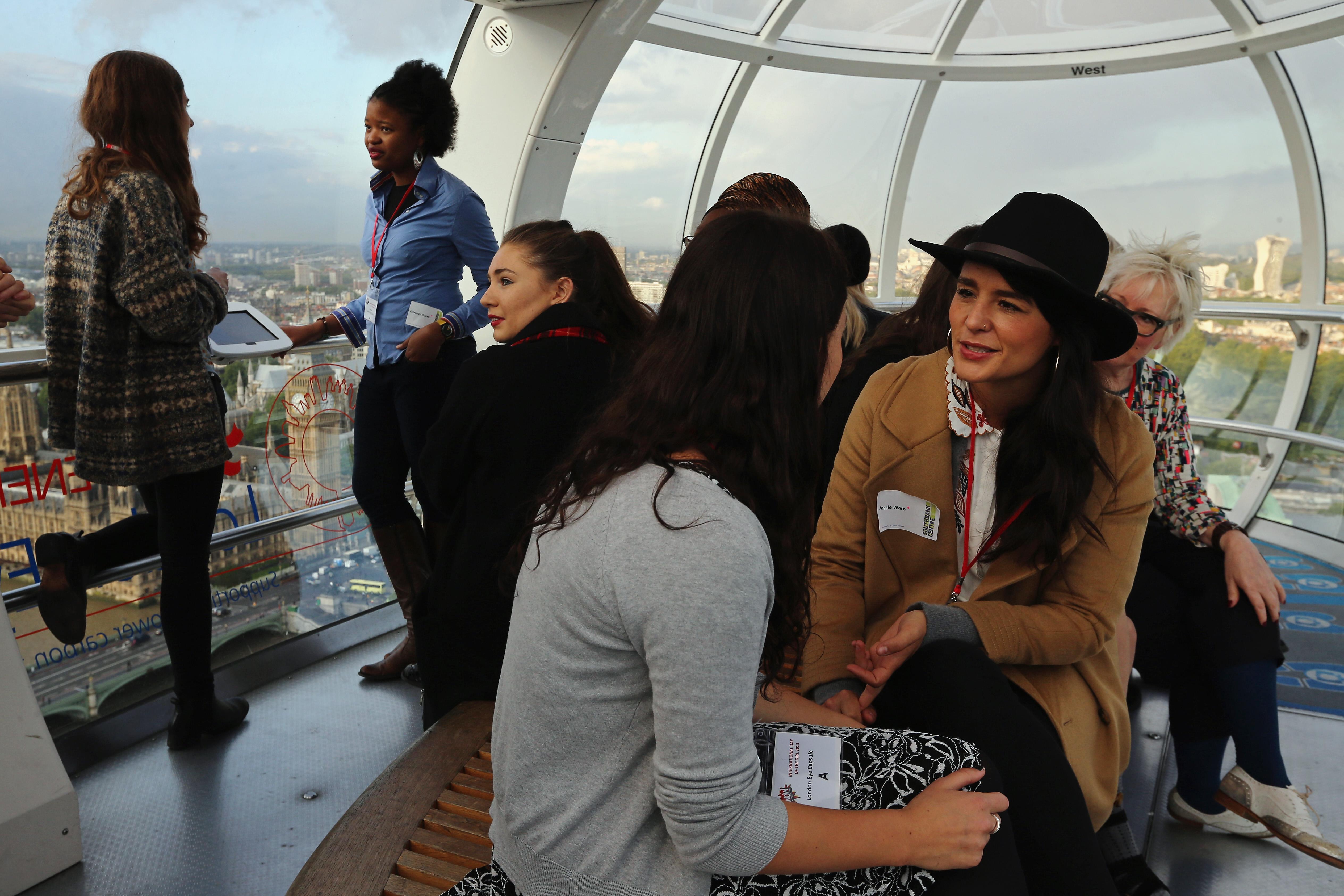As 2013 comes to a close, DoubleX is looking back on the year that was—the stories we covered and missed that captivated, puzzled, enraged, and delighted us. Review with us.
Professional women in their 20s are so oppressed. At least that’s what it seems like from the parade of workplace advice they’re given: They’re allegedly hiding their ambitions, in need of GIFs to tell them how to negotiate a salary, and above all are getting copies of Lean In for graduation from well-meaning aunts, moms, and older sisters. Certainly it can’t hurt anyone to get solid advice on workplace mores—but if you actually look at the data about millennial women, they don’t really need to be told how to be aggressive in the workplace, or in life, anymore. That’s because, in the parlance of a finance bro, they’re already crushing it.
Millennial women (ages 18-32 for the purposes of Pew’s survey) have nearly closed the wage gap. Per Pew, wages are trending up for women as they are trending down for men. Young women are graduating from college and graduate school at higher rates then their male counterparts, and more than 70 percent of millennial women say they think women have the same opportunities as men to get up the ladder at their individual workplaces.
But we’re not just seeing aggressive millennial women triumph statistically. We’re seeing them triumph culturally. Though Hollywood is still overwhelmingly male, we’re starting to see young women triple threats break through at a thoroughly satisfying rate: Lena Dunham, Mindy Kaling, and Amy Schumer are all hilarious, complex, not always “likable” women with their own sitcoms (and in Schumer’s case, their own films).
Online, the queen of the aggro millennial woman is definitely Rebecca Martinson, aka the cunt-punting University of Maryland sorority sister who gave her fellow Delta Gamma sisters the reaming of a lifetime—which went viral and got her the possibly dubious, yet still culturally relevant honor of a Vice column. As Hanna Rosin chronicled in The End of Men, women at Ivy League business schools are Martinson’s peers, who can out-vulgar their male classmates at any opportunity.
Still, as Katy Waldman pointed out in Slate, these statistical gains in the workplace might not last for women. Once they have children, women’s forward progress in the professional world has historically stalled. But I don’t think the solution here is to tell this generation of young women that they need to be more aggressive, or better at negotiating their salaries, or whatever we’re telling them today—they’ve got that in the bag. What needs to happen is that the old dudes in charge, both professionally and interpersonally, need to accept and honor this generation of bad-asses.
